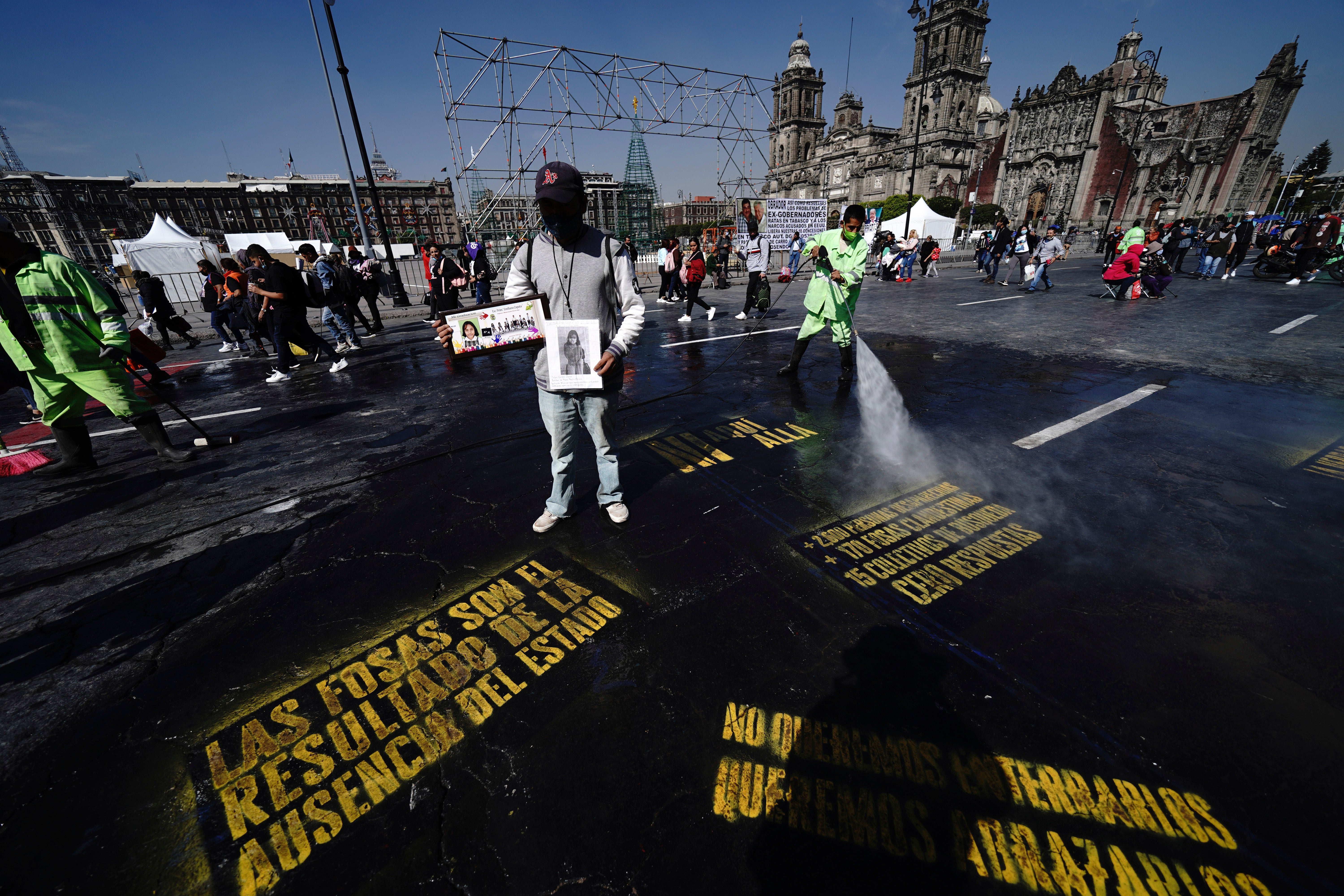Relatives of Mexico missing simulate secret graves in plaza
Families of missing Mexicans have simulated one of the many clandestine burial sites dotting the country, dumping dirt and rock on part of the capital’s massive plaza and digging it away to reveal demands for the government to act

Your support helps us to tell the story
From reproductive rights to climate change to Big Tech, The Independent is on the ground when the story is developing. Whether it's investigating the financials of Elon Musk's pro-Trump PAC or producing our latest documentary, 'The A Word', which shines a light on the American women fighting for reproductive rights, we know how important it is to parse out the facts from the messaging.
At such a critical moment in US history, we need reporters on the ground. Your donation allows us to keep sending journalists to speak to both sides of the story.
The Independent is trusted by Americans across the entire political spectrum. And unlike many other quality news outlets, we choose not to lock Americans out of our reporting and analysis with paywalls. We believe quality journalism should be available to everyone, paid for by those who can afford it.
Your support makes all the difference.Families of missing Mexicans simulated one of the many clandestine burial sites dotting the country, dumping dirt and rock on part of the capital’s massive plaza Monday then digging it away to reveal their demands for the government to act.
Holding photos of their missing loved ones and shovels, members of three search collectives from the central state of Guanajuato staged a morbid protest in front of the National Palace.
During President Andrés Manuel López Obrador’s daily news conference, the groups chanted that if he “doesn’t go to the graves, the graves come to him” as they pounded the ground with their shovels.
Guanajuato is one of Mexico’s most violent states. Two of its municipalities — Salvatierra and Acambaro — rank among Mexico’s top 10 for recovered bodies during López Obrador’s administration.
“When the authorities told us there weren’t secret graves in the state, we with our hands full of dirt and love showed them there were,” the groups said in a statement.
Such search collectives, typically made up by relatives of the missing, have sprung up across Mexico and become one of the most visible symbols of successive administrations’ failure to ensure security for their citizens. The grim work of looking for clandestine graves where drug cartels dispose of their victims was largely left to desperate parents, siblings and grandparents.
On Monday, those participating were mostly women who have led the majority of the efforts.
Mexico has more than 95,000 disappeared, according to government data. More than 93,000 of those disappearances occurred since 2006, when the government began is war against organized crime. The government has struggled to identify even the bodies that have been found. Some 52,000 await identification.
When the United Nations Committee on Enforced Disappearances recently visited Mexico they concluded the problem was “an almost absolute, structural” impunity when it came to the disappearances. The committee called Mexico’s security efforts “not only insufficient but also inadequate.”
The collectives protesting agreed. They said the current security strategy “has had as a consequence an increase in the violence.”
They requested a meeting with López Obrador, recognition that the government’s security strategy has failed and for the government to work with civil society to find answers.
López Obrador’s administration has raised the profile of the issue and makes information about disappearances and search efforts available periodically. It has also said that it is willing to address the U.N. group’s recommendations.